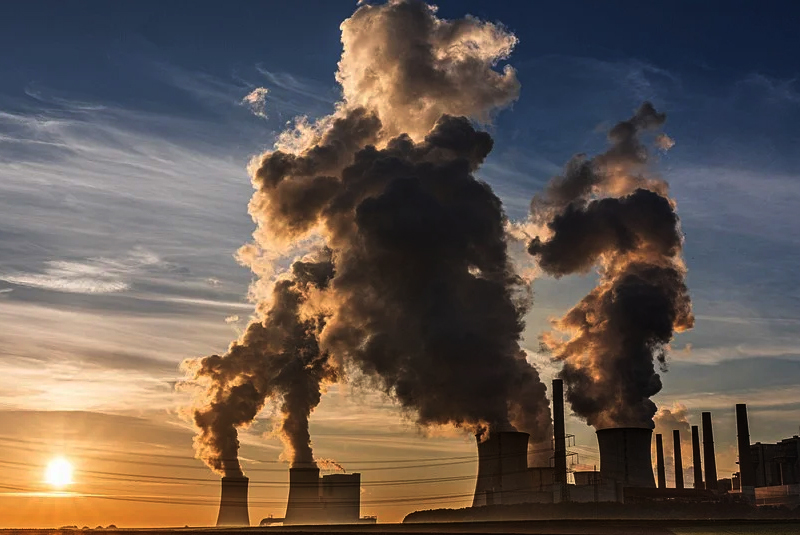In its recorded history spanning millennia, human civilisation hasn’t achieved more technological and socio-economic progress than in the last fifty years of its existence. We have ushered in the digital revolution since the 1980s.
The rampant deployment of digital technology has spawned myriad technological ‘advances’ across the socio-economic and socio-cultural spectrum. This ‘digital age,’ driven by software, has several pompous neologisms: the ‘Fourth Industrial Revolution,‘ ‘Web 4.0,’ ‘Manufacturing 4.0,’ and ‘Industry 4.0,’ among others.
The term ‘Fourth Industrial Revolution’ was popularised by Klaus Schwab, the founder of the World Economic Forum; it was driven by automation, Artificial Intelligence (A.I.), Machine Learning (ML), Machine-to-Machine Communications (M2M), Internet of Things (IoT) and Robotics.
But amidst all the fanfare and, ostensibly, a ‘leap’ into the imminent technological singularity – heralded as the epitome of human progress and a testament to the power of the human mind – many are oblivious to the fact that the planet’s geological footprint, has transitioned from the Holocene epoch to the Anthropocene. In layman’s terminology, the Anthropocene is a human stain on Earth, indicative of the alarming degradation accelerated by the singular malefactor known as global capitalism.
By the end of the Cold War and the disintegration of the Soviet Union, capitalism established itself as the dominant socio-economic system under U.S. hegemony. The Industrial Revolution, which started in Great Britain in the eighteenth century, quickly spread to the European hinterland and North America and brought in the era of mechanisation powered by burning coal.
Though coal was more expensive and less efficient than hydropower, the capitalists preferred it as it offered space and time independence for establishing factories in overcrowded urban centres. Coal facilitated factory owners to move workers to factories rather than moving factories to the water source.
And, post the Factory Act in England, meant to rein in worker exploitation, coal was instrumental in procuring sustained cheap labour and uninterrupted production. The Stock of coal replaced the flow of water as the predominant fuel source, which augmented climate change through Greenhouse Gas emissions.
Unbridled economic activity post-World War II, known under the misnomer, The Great Acceleration (which gained traction since the 1950s), dramatically altered the Earth system—the sum of planetary interactions with physical, chemical, biological and human processes. The core paradigms of capitalism—centred on incremental ‘growth,’ Year on Year, (YOY) through the introduction of National or Gross Domestic Product (GDP) accounting standards—intensified anthropogenic impact on the planet.
Capitalism is based on accumulation, and its principal problem is growth. In the West, the laissez-faire and neoliberal economic policies have created a free market system, unfettered by fewer government regulations. It resulted in the proliferation of organisations, each vying to dominate the market share.
Capitalism, inherently a do-or-die system, revolved around customer acquisition and profits. A firm’s profitability and its organisational life cycle have positive correlations. Companies must incessantly grow in a capitalist economy, creating demand for their products and services. A lack of demand in the general economic parlance constitutes a recession.
All expansionary fiscal and monetary policies are formulated to stimulate demand in the economy. Demand creation, production and consumption are, therefore, intrinsically linked. The higher the market share, the higher the profit that translates into inordinate production and employment of financial capital.
Capitalism is condemned to perform in this inescapable loop, exacting a great toll on the planet by burning more fossil fuels, cutting down rainforests and farming livestock. For instance, under Jair Bolsonaro, the Brazilian government was accused of encouraging farmers to burn Amazon rainforests—often called ‘the lungs of the Earth’ for their pivotal role in absorbing CO2—to expand agricultural land. Protests by indigenous communities, environmentalists and activists were ignored to maintain the global market share of Brazilian beef exports at twenty per cent and for the cultivation of soybeans.
The GDP—a market-led accounting system—indicates the sum of goods and services produced in a country. Only goods and services flowing through the market system are accounted for, effectively ruling out its environmental impact. Nature and natural systems are considered ‘resources,’ meant to be used and abused for economic gain.
If an oil rig explodes, the GDP increases by virtue of the cleaning costs, repair and maintenance or decommissions of the rig, insurance payouts, lawyer fees, higher insurance, and re-insurance costs, and all these activities involve market transactions and economic value-added. But sadly, there is no metric to measure the ecological and environmental damage due to the toxic effluent spilt into the ocean, which adversely and often fatally impacts marine life and biology. The social and environmental costs of human folly are excluded from national income accounting.
Ironically, forests, which play an essential role in regulating the Earth’s climatic patterns, don’t hold any economic value unless assessed as timber or as agricultural land for cultivating a cash crop. Wars, geographical cataclysms, and man-made disasters like market crashes could increase GDP, pertinent to reconstruction costs. The capital assets destroyed need to be replaced, which often creates multiplier effects. However, the lives lost, livelihoods devastated, and environmental impact have no effective metrics for their accounting. It is negligible or redundant in terms of economic growth.
Naomi Klein, the Canadian author and social activist, has coined the terms “disaster capitalism” and “shock doctrine” to expose corporate profiteering from disaster zones. She categorically espouses the tactics and strategies of most corporate behemoths to implement their corporate wish list with the consent of governments.
Private military contractors descending on New Orleans in the wake of Hurricane Katrina to explore profitable options and Exxon Mobile reaping windfall gains by oil price rise following the U.S. invasion of Iraq in 2003 are classic cases. Rex Tillerson, the former U.S. Secretary of State and erstwhile CEO of Exxon Mobile, was allegedly the torchbearer of spreading misinformation on climate change who downplayed the devastating impact of fossil fuels.
A report by The Intergovernmental Panel on Climate Change (IPCC) in October 2018 raised alarm bells about greenhouse gas concentrations in the atmosphere. Achieving the benchmark 1.5 degrees centigrade above pre-industrial temperature levels requires global emissions to decline 7.6 per cent annually.
Only sustained reduction of greenhouse gases will lead to targeted true carbon negative by 2050. The perilous consequences of its failure will be a total climate collapse; sea levels will rise, inundating coastal megapolis, cities and towns; the oceans will acidify; nitrogen and phosphorus cycles will be disrupted; there will be food and freshwater shortages, leading to mass starvation, exodus, forced displacements, which will lead to military solutions to wrest control over scarce resources.
Capitalism, in its current global iteration, has created concentrations of power. Globalisation and capitalism have enriched a few and impoverished many. Internationalisation of production, globalisation of markets, and sophisticated technologies to extract raw materials are all aimed at higher profitability.
Wastage, the hallmark of capitalism, valorises human progress through environmental destruction. Products are designed to become obsolete after a few years of use, necessitating the need for replacement. Overproduction of goods, planned obsolescence, and reckless abuse of natural resources have led the nineteenth-century English philosopher and conservationist John Ruskin to conclude that capitalism produces not wealth but ‘Illth.‘
’Illth’ manifests itself in myriad forms, the most conspicuous being the consumption of the ultra-rich in large houses, private jets, luxury cars, houses and yachts, and other material symbols of ostentatious living, contributing to massive environmental degradation.
The carbon emissions of the wealthiest 10 per cent are 175 times more than that of the poorest 10 per cent, translating into over 50 per cent of global consumption-based emissions. In January 2022, Chile castigated the U.K. for dumping textile waste in the Atacama Desert. In the same month, Poland coerced the U.K. to spend £1 million to repatriate 1500 tons of plastic, textile, and aluminium waste.
‘Waste colonialism’ is a new trend in the capitalist Western world, as they scramble for dumping grounds for the millions of tonnes of toxic detritus expelled from their global factories. The percentage of municipal waste accumulating in landfills is only a paltry 3 per cent, whereas industrial waste constitutes a staggering 97 per cent of all solid wastes.
Climate change activists promote ‘Consumer Sovereignty‘ as a powerful tool to combat the unsustainable exploitation of natural resources. They champion a Green Revolution conditional to consumers demanding eco-friendly products and promoting ecologically conscious companies.
The proposition that, when aggregate demand for green products increases, the global economies will turn green has proven to be a myth. Since giant corporations bestow ownership and control of the means of production, what is produced only dictates what is consumed.
This ‘dependence effect’ is best illustrated in Canadian-American economist John Kenneth Galbraith’s The Affluent Society. A circular economy ecosystem is far off, as organisations pump a trillion dollars annually in marketing campaigns to target customers to buy products with little or no utility.
With the explosion of digital marketing, companies use algorithmic intelligence and computational power to coax customers through intrusive behavioural targeting campaigns that include omnichannel push, email, geotagging and geofencing strategies.
A Zero-Carbon emissions world is a contingency issue now. Think tanks, activists and intelligentsia have suggested several measures to persuade organisations to reduce their carbon footprint. Carbon taxes, increased subsidies for renewable and non-hydrocarbon energy sources, decreased subsidies for fossil fuel polluters, nuclear energy, multilateral treaties, reforestation, energy storage, and development of carbon-capture technologies are some compelling propositions.
No current or future technology would serve as deux ex machina to save humans from a climactic apocalypse unless there is a social and political realignment for ecological sustainability and a collective consciousness to rescind human greed. It is a long road to freedom, as the Kyoto Protocol and the Paris Agreement haven’t effectively reduced carbon emissions.
As economies, driven by a capitalist ethos, compete for a hockey stick growth curve, planet Earth puffs and gasps from a hockey stick environmental decline. An ecocidal race is threatening the very existence of the planet.
-30-
Copyright©Madras Courier, All Rights Reserved. You may share using our article tools. Please don't cut articles from madrascourier.com and redistribute by email, post to the web, mobile phone or social media.Please send in your feed back and comments to [email protected]











